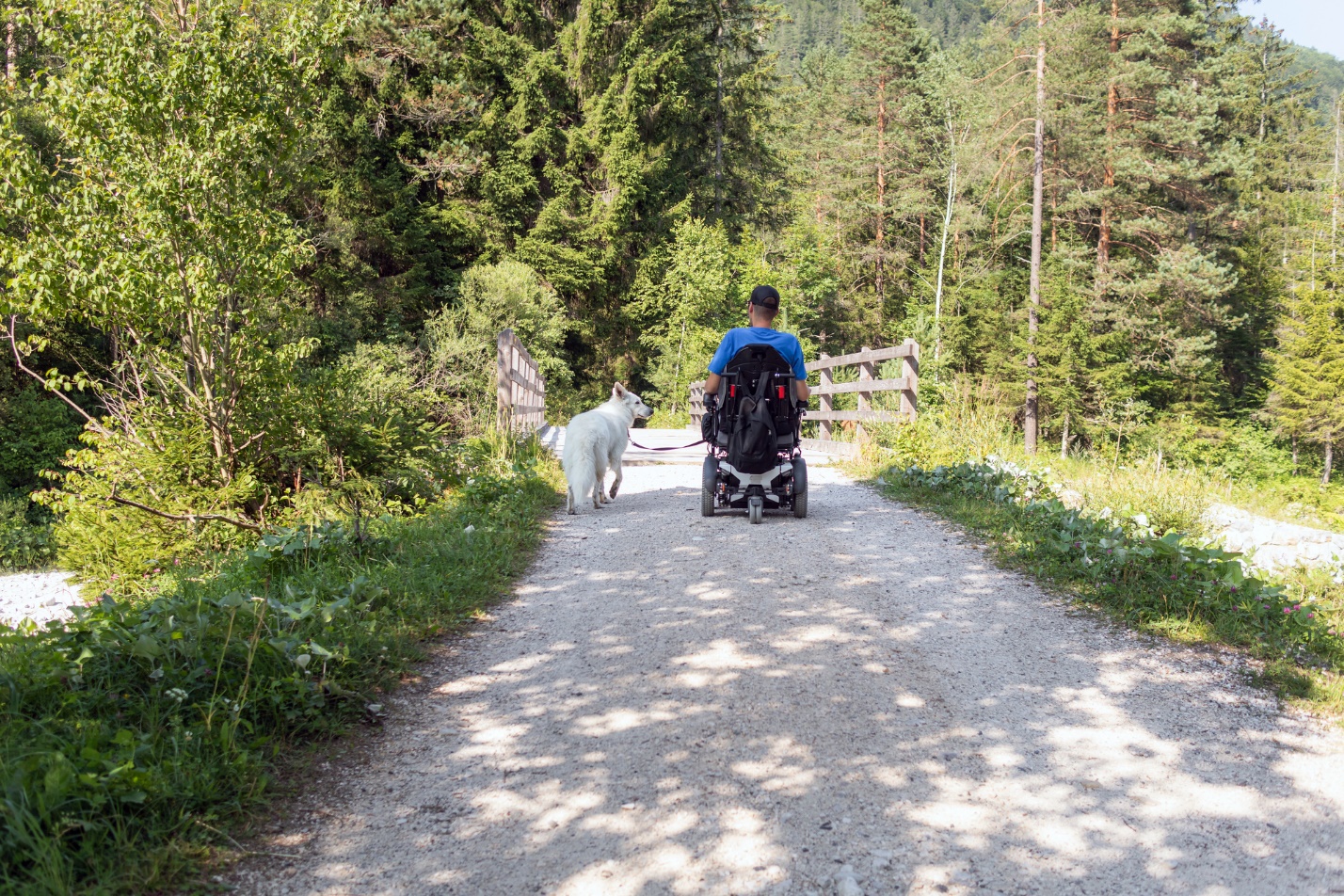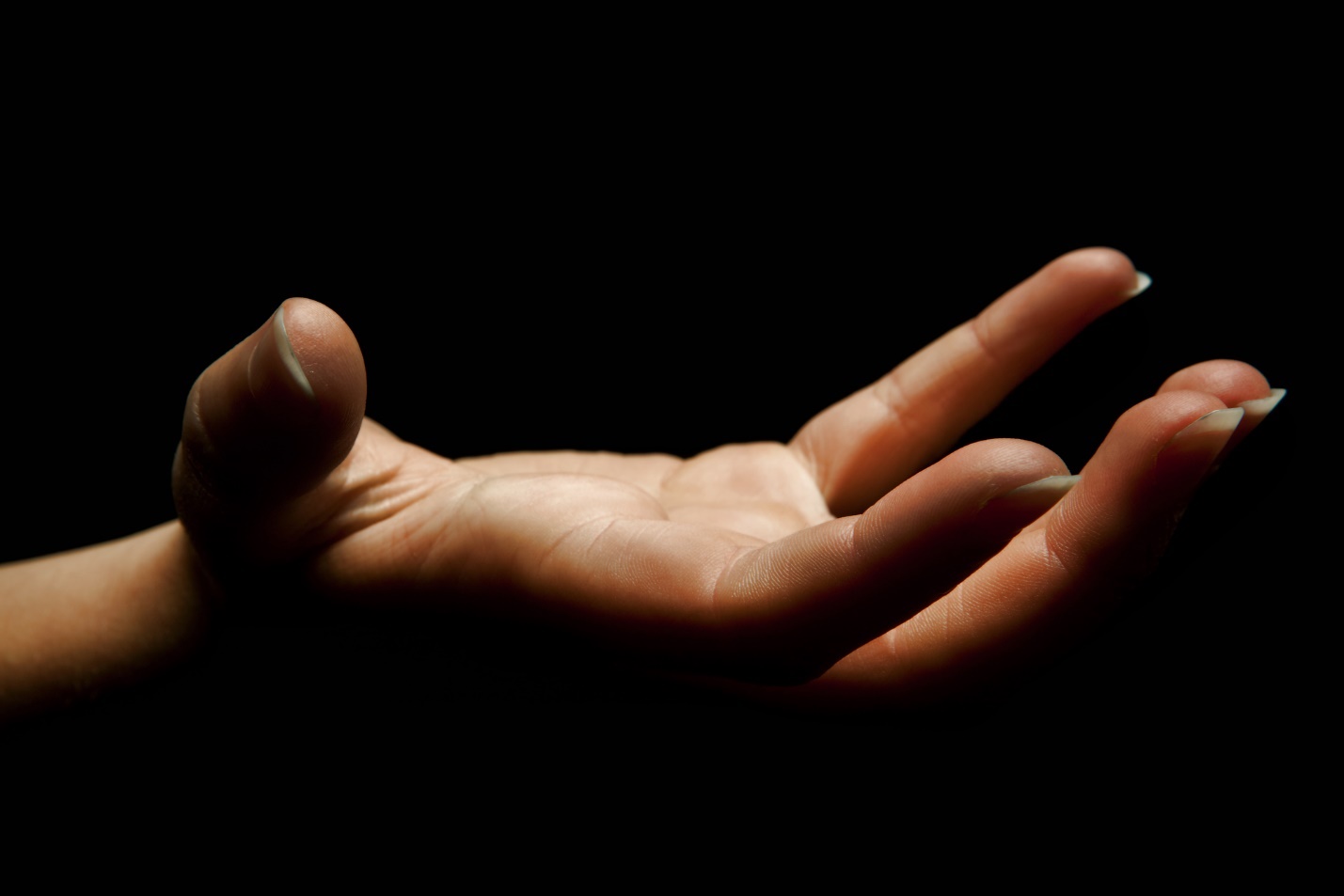BP 121
I once knew a man named Jim when I was in my mid-twenties. He was a few years younger than me and was also much weaker than me. He never dated anyone, often drooled, was not able to speak in a manner that most people could understand, could not even stand up, and was highly dependent on others.
But he was one of the strongest people I ever knew in my six decades of life.

Jim had a rare neuromuscular disease. When he was seven, he was playing baseball and running all over creation with his peers. By the time he was eighteen, he was confined to a wheelchair and could not even eat without assistance. He had been reduced to a quadriplegic existence.
What can we say about Jim? Oh, how the mighty have fallen? No, the strongest people reveal their mammoth strength in deep suffering.
Resiliency
Are you a weak person? Are you a strong person? No, I’m not speaking about physical strength. The strength and appearance of the human body is clearly overrated in this world. As we see in Jim’s life, strength often has nothing to do with the body. I am referring to emotional, spiritual, and relational strength. Another way to speak about it is the level of your resilience. Some might refer to it as ego strength.
So, what is resilience anyway?
One article in verywellmind by Kendra Cherry says that “resilience is the ability to cope with and recover from setbacks. People who remain calm in the face of disaster have resilience. People with psychological resilience are able to use their skills and strengths to respond to life’s challenges . . .”
Cherry goes on to say that “people with resilience do not experience less distress, grief, or anxiety than other people do. Instead, they use healthy coping skills to handle such difficulties in ways that foster strength and growth, often emerging stronger than they were before.”
My friend, Jim, had resilience, then. He did not have less stressors than most people. He had more stressors, many more. So, he must have had a whole lot of healthy coping skills inside his weak body.
In her article, Cherry also writes that resilient people have a survivor mentality, skills that lead to emotional regulation, a sense that they have some control in their world (strong internal locus of control), problem-solving skills that are characterized by rationality, and a good social support network.

As a Christian who happens to be a psychologist, I would define resilience (to mention but a few things) as how well you handle stressors in your life relative to the health of your physical body, relational conflicts, temptation, rejection or disappointment by others, how you sleep when the world is falling apart around you, and even how you prepare for and deal with death and dying.
The Ingredients of Resiliency
As I think about it, some factors that may have impacted your level of resiliency include:
- Your innate personality (after the fall, unfortunately)
- Your learned coping skills
- The models in your life such as parents, siblings, teachers, coaches, pastors who impacted your mental health by how they responded to the problems in their own lives and how they related to you as someone under their influence and authority
- Physical challenges such as Type One diabetes, severe asthma, neuromuscular diseases, childhood cancer, sensory disabilities, to name a few
- Your attitude toward the circumstances in your life
- Peer interactions and influences
- Moves to different houses, schools, cities especially during critical developmental stages of your young life
- Satan’s impact through lies/accusations/attacks against you and the imago dei within you
- Cognitive challenges such as learning disabilities, ADD, TBI, seizures, disabling migraines, autistic tendencies, and so on
- Trauma such as abuse, neglect, abandonment, someone in your life identifying you as his or her designated scapegoat or being taught that God does not exist or that God is only about moralism—trying to be good.
- Being taught as a young believer that you should be healed, whole and holy at the moment of justification and so anything less than personal perfection is to be hidden because it is evidence of your inadequacy as a child of God and therefore something shameful
- God’s unique working in your life to prepare you for the specific journey He has laid out for your greatest joy and His greatest glory
- Your perspective on and development of trust: lean on God or yourself
A little side note here: don’t judge someone you perceive as weak. You do not know where they came from or what they have encountered along the way or, most importantly, what God is doing in them.
There are some people who appear weak on the outside but are actually five times stronger than everyone around them. Why? Possibly because they have had so many more opportunities to grow and/or their strength does not always manifest on the surface but runs miles down into the bedrock of their character.
There could be another reason as well (see Jeremiah 17:7-8, a tree planted by the stream).

The “Range of Resiliency” Scale
There is a scale I think of in my mind that I have labeled the Range of Resiliency Scale (RRS). I hesitate to use the scale because resiliency can be applied to so many different variables. A woman might faint at the sight of a needle but fight off a pack of dogs to save her child. A man might get light-headed when off the ground four feet on a ladder but will absolutely walk to the guillotine for Jesus if it is demanded of him. So, a person might have high resiliency in relation to one stressor but low resiliency in another area.
For the purposes of this post, however, I will move forward with the RRS just as a framework in which to talk about resiliency. I view the RRS as a continuum running from 0-100. Of course, no human is probably at ‘0’ on the scale and no human is at ‘100’. We all fall somewhere above ‘0’ and below perfection.
I see all individuals as falling in a fifteen-point range such as 45-60 or 70-85. In other words, we do not fall at one distinct point on the scale but are in a range that can vary due to the specific stressor, the coping skill required such as emotional regulation or self-comfort, or to situational lack of sleep, physical illness, hormonal changes, and so on.
A score of 50-65 indicates a person who is moderate in their resiliency level while someone who falls between 75-90 would be relatively amazing in their ability to handle stress wisely and maturely. Although I have not developed a formal, working scale that measures resiliency, a tool known as the Barron Ego Strength Scale does claim to measure ego strength.
Of course, this kind of scale and possibly even my proposed RRS might be very limited in that they assess factors related to strength and resilience in observable and measurable worldly terms.
An intriguing question we might ask is if people who are born again Christians with a strong faith in God can rank lower on an ‘external’ resiliency/ego strength scale (even than some nonbelievers)? I would say a resounding yes.
Was it not the apostle Paul who said, “So to keep me from becoming conceited because of the surpassing greatness of the revelations, a thorn was given me in the flesh, a messenger of Satan to harass me, to keep me from becoming conceited. Three times I pleaded with the Lord about this, that it should leave me. But he said to me, ‘My grace is sufficient for you, for my power is made perfect in weakness.’ Therefore I will boast all the more gladly of my weaknesses, so that the power of Christ may rest upon me. For the sake of Christ, then, I am content with weaknesses, insults, hardships, persecutions, and calamities. For when I am weak, then I am strong” ~ 2 Corinthians 12:7-10.
(I wonder what scale psychologists have that measures weakness that is actually strength.)
Some have proffered ideas about what Paul’s weakness might have been. They say it could have been a physical limitation (remember Jim) like poor eyesight. It might have even been a mental disability like depression or anxiety as hinted at in 2 Corinthians 1:8 where Paul wrote that “we were so utterly burdened beyond our strength that we despaired of life itself.”

God’s Resilience
Whatever Paul’s weakness was, it might have lowered his score on the RRS scale or the Barron Ego Strength Scale. However, because God was Paul’s source of strength, he would probably claim that the world’s resilience scale is irrelevant. As long as his spiritual eyes were on Jesus, he would score high on the only scale that matters.
Never forget words of Scripture such as Psalm 73:23-23: “Nevertheless, I am continually with you; you hold my right hand. You guide me with your counsel, and afterward you will receive me to glory. Whom have I in heaven but you? And there is nothing on earth that I desire besides you. My flesh and my heart may fail, but God is the strength of my heart and my portion forever.”
In the world’s economy of strength, we will score higher on the scale of resilience if we have a high internal locus of control (a reliance on our ability to control and impact the world). However, the Bible goes well beyond internal locus and says that we need to have a high external locus of control in that we trust that “God is the strength of my heart.” Jesus needs to be our source of resilience above all others.
In her article, Kendra Cherry says that “resilience does not eliminate stress or erase life’s difficulties. People who possess this quality don’t see life through rose-colored lenses. They understand that setbacks happen and that sometimes life is hard and painful. They still experience the negative emotions that come after a tragedy, but their mental outlook allows them to work through these feelings and recover.”
I think that what Cherry says is consistent with God’s word. Believers in Jesus would simply add to her comments the lynchpin, namely, that the mental outlook that gets us through the difficulties of life comes from the presence of the Holy Spirit living within us and empowering us with amazing resilience and ego strength (God-strength).
What are the core characteristics that determine emotional, spiritual, and relational resilience in this world? Are they not found in Galatians 5: “But the fruit of the Spirit is love, joy, peace, patience, kindness, goodness, faithfulness, gentleness, self-control . . .” I don’t know about you, but these attributes sound more essential to a resilience that serves others than things like internal locus of control and a survivor mentality.

God-dependence or Self-dependence
Penultimate thought today: In God’s economy, neediness is an essential prerequisite to turning to God, to repentance, to faith in Him instead of our own selves. Some people who need God the most may very well have lower ego strength and a resilience between 35-50 or even less. Know that Jesus does not ask you to be self-sufficient or self-strong but to seek Him with all your heart. Weakness, once again, welcomes God’s strength to abide in us.
Self-strength is a barrier to a relationship with God. So, be needy. A low score on any resilience scale might mean that you need God every day and every moment to be strong.
My friend, Jim, died of pneumonia while he was attending college and . . . as he was needing Jesus for his every breath. He was totally dependent on other humans for his care, his transportation, and his food. Above all, however, he showed me his love for Jesus and convinced me that if I lean on God’s strength, I will have amazing resilience even in the face of dying and death.
Even now, I have tears in my eyes as I think about Jim’s deep resilience built on his faith in the Faithful Father. Yes, he was the weakest strongest man I ever knew.
Don’t worry too much about scoring high on internal locus of control, then. Rather, seek Jesus with all your heart because of what He tells you in Jeremiah 29: “For I know the plans I have for you, declares the LORD, plans for welfare and not for evil, to give you a future and a hope. Then you will call upon me and come and pray to me, and I will hear you. You will seek me and find me, when you seek me with all your heart.”
Be like Jim. Be like the apostle Paul. Be like Sarah Young who wrote Jesus Calling. Be like Corrie Ten Boom. All these saints were/are weak. But all of them are towering lighthouses in a dark world because they are jars of clay indwelt by the eternal God.
You are far stronger if you are so weak that you need God than if you are so strong in your own strength that you have no need of God.
The world has no clue about the giants of faith who daily walk among them.


